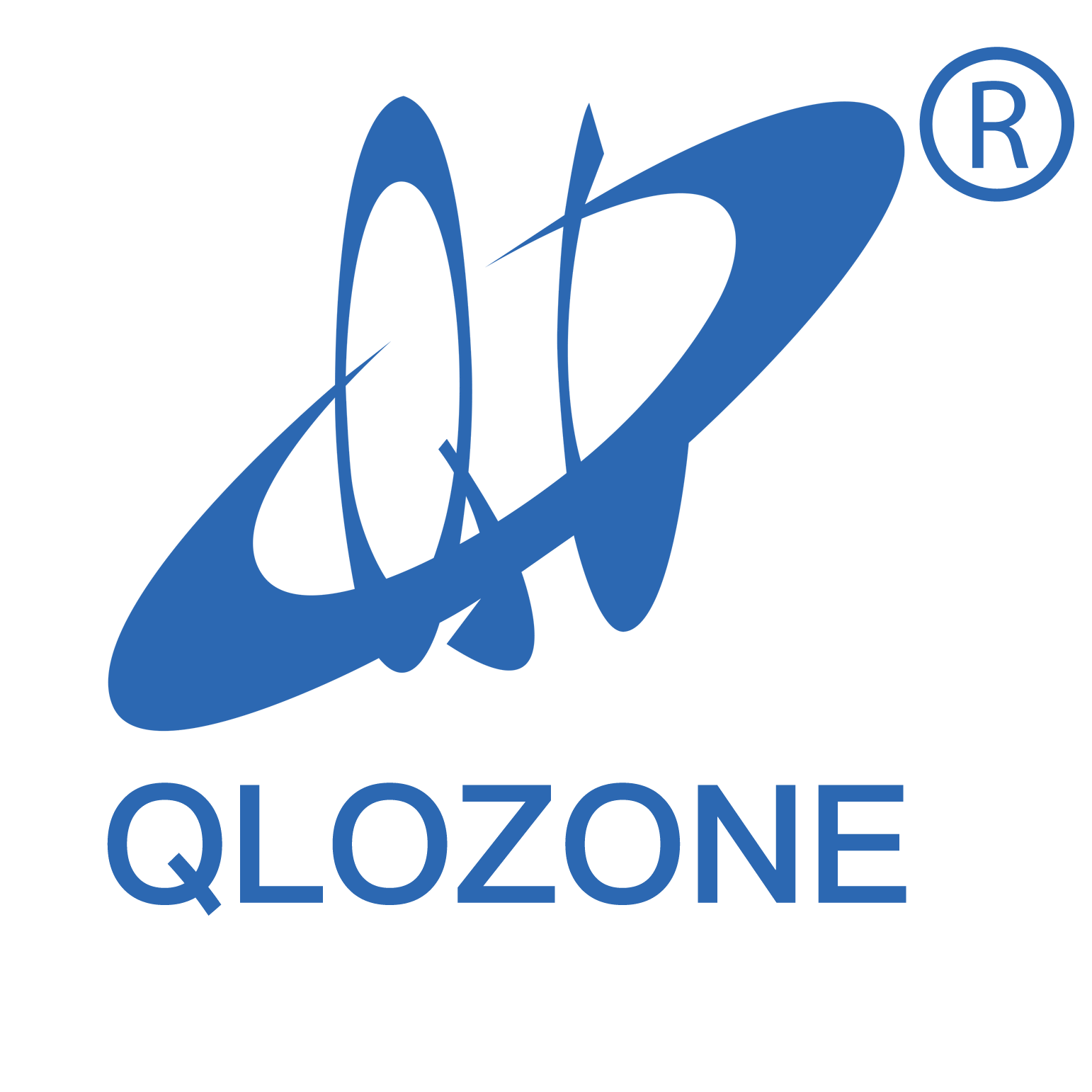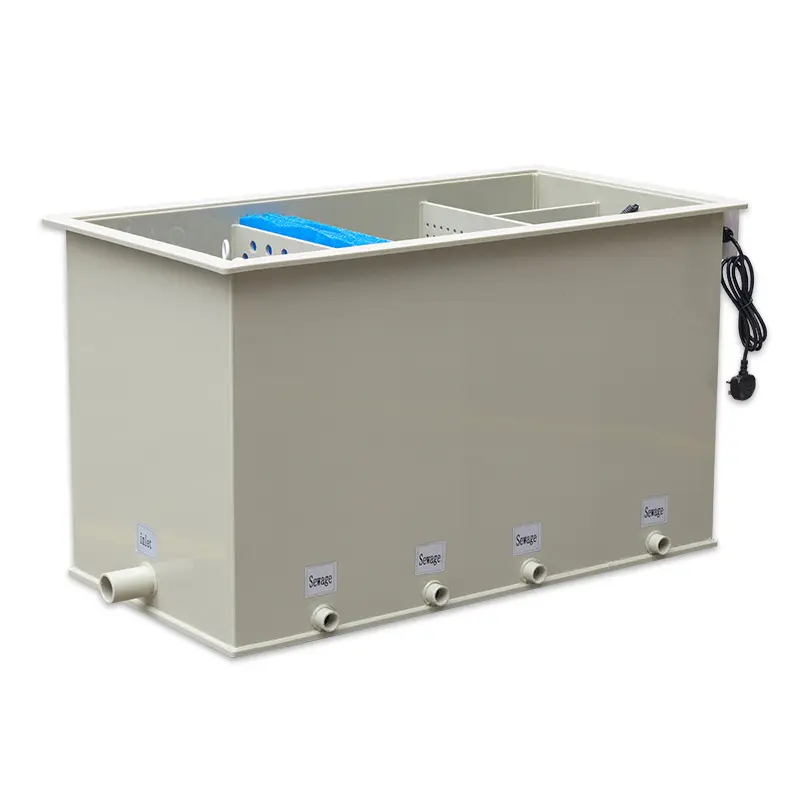ခိုအိုင်ကျန်းမာရေးကို မိတ်ဆက်ခြင်း
ကောင်းကင်ပြာရေကန်ကို ကျန်းမာစေရန် ဂရုစိုက်ခြင်းသည် အလှအပအတွက် အရေးကြီးသလို ထိုနှုန်းညံ့သော ငါးများ၏ တကယ့်ကျန်းမာရေးအတွက်လည်း အရေးကြီးပါသည်။ ရေကန်အားလုံးကောင်းမွန်နေသည့်အခါတွင် ကိုင်းများသည် မိမိတို့၏ အရောင်စုံလှစွာဖြင့် အသက်ဝင်လာပြီး ရေအောက်ရတနာများကဲ့သို့ ရွှေ့ပြောင်းနေထိုင်မှုပုံစံများကို ပြသပါလိမ့်မည်။ ရေအရည်အသွေး၊ စစ်ထုတ်မှုနှင့် ငါးကျန်းမာရေးတို့သည် လူများမျှော်လင့်ထားသည်ထက် ပိုမိုအရေးကြီးသောနည်းလမ်းများဖြင့် အတူတကွလုပ်ဆောင်ပါသည်။ ရေသည် အဆိပ်အတောက်ဖြစ်လာပါက ငါးများသည် စိတ်ဖိစီးမှုကိုခံစားရမည်ဖြစ်ပြီး ပြဿနာများကို ပြသရန် အမှတ်အသားများကို မကြာခဏပြသပါလိမ့်မည်။ ရေကန်၏ကျန်းမာရေးကို ထိခိုက်စေသည့် အချက်များစွာရှိပြီး ကောင်းစွာလေဝင်လေထွက်ကောင်းခြင်း၊ အနားတွင်အပင်များထားခြင်းနှင့် သေချာသောစစ်ထုတ်မှုစနစ်ကို အမှန်အကန်ရှိနေခြင်းတို့ပါဝင်ပါသည်။ စစ်ထုတ်မှုစနစ်သည် အထူးအရေးကြီးပါသည်။ အကြောင်းမှာ ရေကိုသန့်ရှင်းစေပြီး ရေကန်စနစ်အားလုံးကို မျှတစေပြီး ကိုင်းများကို ခိုင်မာစေရန်နှင့် ကျန်းမာစေရန် အတွက်ဖြစ်ပါသည်။ ရေကန်ကို ထွန်းလာစေလိုသူများအနေဖြင့် အချိန်ကြာလာသည်နှင့်အမျှ ဤစစ်ထုတ်မှုစနစ်များကို အထူးဂရုစိုက်ရန် လိုအပ်ပါသည်။
Advanced ဆိုတာဘာလဲ ရေစစ် ?
ကောင်းမွန်စွာ စစ်ထုတ်ပေးနိုင်မှုသည် ငါတို့၏ရေကို ကျန်းမာရေးနှင့် ပြည်းစေရန် အရေးကြီးပါသည်။ ကောင်းမွန်သောစနစ်များသည် ရေထဲတွင် ပေါလျော်နေသော အရာများကို ဖယ်ရှားပေးရာတွင် ကြိုးစားအားထုတ်ပါသည်။ အရွက်များ၊ မြေညစ်များမှသည် အဆိပ်အတောက်များနှင့် အဏုဇီဝအားလုံးကို ဖယ်ရှားပေးပါသည်။ ရေသည် သန့်ရှင်းနေပါက ရေကန်တစ်ခုလုံး၏ ပုံသဏ္ဍာန်ကောင်းလာသည့်အပြင် ငါးများကိုယ်တိုင်လည်း ကျန်းမာလာပါသည်။ အများစုက စစ်ထုတ်ပေးမှုကောင်းမွန်ပါက ငါးများသည် ပို၍ပျော်ရွှင်သည်ဟု သတိပြုမိကြပါသည်။ အဆိပ်အတောကင်းသော ရေထဲတွင် နေထိုင်ရသည်မှာ အားလုံးကြိုက်နှစ်သက်ကြမည့်အတိုင်းပင်ဖြစ်ပါသည်။
ကိုင်းကန်များတွင် အများအားဖြင့် စက်မှု၊ ဇီဝ၊ နှင့် ဓာတု စသည့် အခြေခံအမျိုးအစားသုံးမျိုးပါဝင်သည့် စုပေါင်းစစ်ထုတ်မှုစနစ်များကို အသုံးပြုကြသည်။ အစိတ်အပိုင်းများကို ပထမဆုံးစုစုပေါင်းစစ်ထုတ်ပေးသည့် စက်မှုစစ်ထုတ်ခြင်းသည် ပြဿနာများဖြစ်စေမည့် အခဲအစိတ်အပိုင်းများကို ရေမှဖယ်ရှားပေးသည်။ အက်စက်များမှ အက်စက်ပုံစုဆောင်းခြင်းနှင့် အသေးစားအရာများကို စုဆောင်းပေးသည့် ဒရမ်စစ်ထုတ်ခြင်းတို့ကို ဥပမာပြောနိုင်သည်။ နောက်ပိုင်းတွင် ဇီဝစစ်ထုတ်ခြင်းကို အသုံးပြုကြပြီး ကောင်းမွန်သောဘက်တီးရီးယားများက အလုပ်လုပ်ပေးကြသည်။ ဤအဏုဇီဝများသည် ငါးများ၏စွန့်ပစ်ပစ္စည်းများကြောင့်ဖြစ်ပေါ်လာသည့် အမိုနီယာကိုစားသုံးပြီး ကန်၏စိုစွတ်သော ပတ်ဝန်းကျင်အတွက် ပိုမိုလုံခြုံသောအရာများအဖြစ်သို့ ပြောင်းလဲပေးသည်။ ဓာတုစစ်ထုတ်ခြင်းတွင် တစ်နေ့တာအသုံးပြုခြင်းမဟုတ်ဘဲ ရေထဲတွင် ကူးစက်မှုများပေါ်ပေါက်လာသည့်အခါတွင်သာ အသုံးဝင်သည့် စွမ်းအားမြင့်ကာဗွန်ကို အသုံးပြုကြသည်။ ဤစစ်ထုတ်ခြင်းသည် သဘာဝပတ်ဝန်းကျင်၏ တည်ငြိမ်မှုကို ထိခိုက်မခံစားဘဲ အရာအားလုံးကို သန့်ရှင်းစေရန် ကူညီပေးသည်။
ကော်ဖစ်ငါးတွင်းများတွင် တီထွင်ထုတ်လုပ်ထားသော စစ်ထုတ်ပေးသည့်နည်းပညာများထည့်သွင်းခြင်းသည် စဉ်းစားစရာကောင်းသော အကျိုးကျေးဇူးများစွာ ပေးစွမ်းပါသည်။ ဤစနစ်များသည် ရေကိုပိုမိုရွှင်သောအပြင် တွင်းအတွင်းရှိ ရေစီမံခန့်ခွဲမှုကိုပိုမိုကောင်းမွန်စေပြီး ပုံမှန်သန့်ရှင်းရေးလုပ်ငန်းများအတွက် အချိန်ကိုလျော့နည်းစေပါသည်။ သို့ရာတွင် ၎င်းတို့၏ဇီဝဆိုင်ရာစစ်ထုတ်မှုလုပ်ငန်းစဉ်များအပေါ်တွင် သက်ရောက်မှုကြောင့် တန်ဖိုးရှိသည်။ အမှိုက်များကိုပိုမိုကောင်းမွန်စွာ ဖျက်စီးပစ်ခြင်းကြောင့် ကော်ဖစ်ငါးများသည် ကျန်းမာစွာနေထိုင်နိုင်ပြီး အချိန်ကြာလာသည်နှင့်အမျှ ပိုမိုသန်စွမ်းလာမည့် ပတ်ဝန်းကျင်ကိုဖန်တီးပေးပါသည်။ တွင်း၏အခြေအနေကောင်းမွန်စေရန် စိတ်ဓာတ်အားဖြင့် အာရုံစိုက်နေသည့်သူများအတွက် အရည်အသွေးမြင့် စစ်ထုတ်မှုစနစ်များသို့ ရင်းနှီးမြှုပ်နှံခြင်းသည် အကျိုးရှိသာရှိသည်။ ထို့ပြင် အရောင်စုံကော်ဖစ်ငါးများကို ရှည်ကြာစွာကျန်းမာစေရန်အတွက် မရှိမဖြစ်လိုအပ်သောအရာဖြစ်ပါသည်။
ခိုအေးကောင်များအတွက် တိုးတက်သော စစ်ဆေးခြင်း၏ အကျိုးကျေးဇူးများ
ကော်ဖီတွင်းရှိ ငါးများအတွက် ရေအရည်အသွေးကို တိုးတက်စေရန် ပိုကောင်းမွန်သော စစ်ထုတ်မှုစနစ်များသည် အမှန်တကယ် ကွာခြားမှုကို ဖန်တီးပေးပါသည်။ ထို့ကြောင့် ငါးများသည် ပိုမိုပျော်ရွှင်ပြီး ကျန်းမာရေးကောင်းမွန်လာပါသည်။ ဤစနစ်များသည် အမိုနီယာ နှင့် နိုက်ထရိုက်များကဲ့သို့ အချိန်ကြာလာသည်နှင့် တဖြည်းဖြည်းစုပုံလာသော ညစ်ညမ်းသည့်အရာများကို ဖယ်ရှားပေးပါသည်။ ဤအန္တရာယ်ရှိသော ဓာတုပစ္စည်းများကို ပုံမှန်အားဖြင့် စစ်ထုတ်ပေးပါက ကော်ဖီတွင်းရှိ ငါးများအတွက် ပိုမိုလုံခြုံသော နေထိုင်မှုပတ်ဝန်းကျင်ကို ဖန်တီးပေးပါသည်။ အရည်အသွေးကောင်းသော စစ်ထုတ်စက်များသည် သန့်ရှင်းပြီး မှန်ကန်စွာ လည်ပတ်နေပါက ညစ်ညမ်းသောအရာများ၏ ၉၀ ရာခိုင်နှုန်းခန့်ကို ဖမ်းယူပေးပါသည်။ ဤကဲ့သို့ ဖယ်ရှားမှုလုပ်ငန်းစဉ်ကို မှန်ကန်စွာ ဆက်လက်လုပ်ဆောင်မထားပါက တွင်းရေသည် ငါးများကို ဖိစီးမှုဖြစ်စေပြီး နောက်ဆုံးတွင် ရောဂါဝေဒနာများ ဖြစ်ပွားစေသော ပြဿနာများကို ဖြစ်စေသော နေရာတစ်ခုဖြစ်လာပါလိမ့်မည်။
ကိုင်းငါး၏ကျန်းမာရေးအတွက် ရေမှ အမိုနီယာနှင့် နိုက်ထရိုက်များကို ဖယ်ရှားခြင်းသည် အရေးကြီးပါသည်။ အကယ်၍ ထိန်းချုပ်မှုမရှိပါက ဤဓာတုပစ္စည်းများသည် ငါးများကို အဆိပ်သင့်စေနိုင်သောကြောင့် ဖြစ်ပါသည်။ အမိုနီယာအဆိပ်သင့်ခြင်းသည် ငါးများ၏ ရှူလေလမ်းကြောင်းကို ထိခိုက်စေပြီး သူတို့အား မှန်ကန်စွာရှူရှိုက်ရာတွင် ခက်ခဲစေပါသည်။ ထို့ကြောင့် ရေကန်များကို ပိုမိုကောင်းမွန်သော စစ်ထုတ်မှုစနစ်များအတွက် ရင်းနှီးမြှုပ်နှံကြပါသည်။ ဇီဝစစ်ထုတ်စနစ်များသည် ထိုဆိုးကျိုးပြုသော ပစ္စည်းများကို နိုက်ထရိတ်များအဖြစ်သို့ ပြောင်းလဲပေးခြင်းအားဖြင့် ပိုမိုဘေးကင်းသော အခြေအနေကို ဖန်တီးပေးပါသည်။ အကျိုးလေးမှာ ရေသည် ငါးများအတွက် ဘေးကင်းပြီး အဆိပ်အတောက်များ တဖြည်းဖြည်းစုပုံမှုမရှိတော့ခြင်းပင်ဖြစ်ပါသည်။
ထိရောက်သော စစ်ထုတ်ပေးခြင်းသည် အဆိပ်အတောက်များကိုသာ လျော့နည်းစေခြင်းမဟုတ်ဘဲ ကိုင်းငါးများကျန်းမာရေးကို ထိန်းသိမ်းထားရှိရန် အရေးကြီးသော အောက်ဆီဂျင်ဓာတ်ကိုလည်း မြှင့်တင်ပေးပါသည်။ ရေထဲတွင် အောက်ဆီဂျင်ဓာတ်ပိုများပါက ကိုင်းငါးများသည် ပိုမိုစားသုံးကြပြီး မြန်စွာကြီးထွားကာ ရှည်လျားသောကာလအတွင်း ကျန်းမာစွာနေထိုင်နိုင်ပါသည်။ အရည်အသွေးကောင်းသော လေပေးစနစ်များကိုစူးစမ်းလေ့လာပါ။ ထိုစနစ်များသည် အောက်ဆီဂျင်ဓာတ်ကို ပျမ်းမျှ ၃၀ ရာခိုင်နှုန်းခန့် မြှင့်တင်ပေးနိုင်ပါသည်။ ဤသည်မှာ ငါးများအတွက် သင့်တော်သော ပတ်ဝန်းကျင်ကို ဖန်တီးပေးရာတွင် ကြီးမားသော ကွာခြားမှုဖြစ်ပါသည်။ အဓိကအားဖြင့် ပိုမိုကောင်းမွန်သော တံတားစစ်ထုတ်စနစ်များအတွက် ငွေရင်းထုတ်စားခြင်းသည် ရှေ့တွင် အကျိုးအမြတ်ရရှိနိုင်ပါသည်။ ကျန်းမာသောငါးများနှင့်အတူ တည်ငြိမ်သော စိုက်ပျိုးရေးစနစ်သည် တံတားပိုင်ရှင်များအတွက် အလုပ်လျော့နည်းစေပါသည်။
အဆင့်မြင့် စစ်ဆေးရေးစနစ်များ၏ အဓိကလက္ခဏာများ
ကော်ဖစ်ငါးတွင်းများအတွက် တိုးတက်သော စစ်ထုတ်မှုစနစ်များသည် မက္ကင်နစ်နှင့် ဇီဝဗေဒအစိတ်အပိုင်းများကို ပေါင်းစပ်၍ ငါးတွင်း၏ ပတ်ဝန်းကျင်ကို ကျန်းမာစေရန် ထိန်းသိမ်းပေးပါသည်။ အမှုန်အစိတ်များကို ဖမ်းဆုပ်ရာတွင် မက္ကင်နစ်စစ်ထုတ်မှုသည် အဓိက အလုပ်ကိုဆောင်ရွက်ပြီး ရေအရည်အသွေးကို ထိခိုက်စေမည့် အမှိုက်များကို စုဆောင်းထားပေးပါသည်။ အများအားဖြင့် အမှုန်အစိတ်များကို ဖမ်းဆုပ်ရာတွင် စကင်နာတံကောင်များ သို့မဟုတ် တောင်ပေါ်ရှိ ကြီးမားသော ဒရမ်စစ်ထုတ်ကိရိယာများကို အသုံးပြုကြပါသည်။ ဇီဝဗေဒစစ်ထုတ်မှုအပိုင်းတွင် အမိုးနီယာကဲ့သို့ အဆိပ်အတောက်ဖြစ်စေသော အရာများကို တိုက်ဖျက်ပေးသည့် ကောင်းမွန်သော ဘက်တီးရီးယားများအား အခြေခံပါသည်။ ဤကောင်းမွန်သော ဘက်တီးရီးယားများသည် ကော်ဖစ်ငါးများကို သူတို့၏ ရေဗိုလ်တွင် ကျန်းမာစွာနေထိုင်နိုင်ရန် အရေးကြီးသော နိုက်ထရိုဂျင်စက်ဝန်း၏ အစိတ်အပိုင်းတစ်ခုဖြစ်ပါသည်။
ယနေ့ခေတ် စစ်ထုတ်မှုစနစ်များတွင် UV စစ်ထုတ်မှုသည် အလွန်အရေးကြီးသော အင်္ဂါရပ်များထဲမှတစ်ခုဖြစ်ပြီး အထူးသဖြင့် ရေတွင်းရှိ အယ်လ်ဂဲများကို ထိရောက်စွာ ဖယ်ရှားပေးနိုင်သောကြောင့် ထင်ရှားပါသည်။ ဤစနစ်သည် ရေထဲသို့ ယူလာဗီမီးခြည်ကို ထုတ်လွှတ်ပေးခြင်းဖြင့် အယ်လ်ဂဲများနှင့် ရေထဲတွင် ပါဝင်နေသော အဏုဇီဝများကို သတ်ပေးပါသည်။ ရေကန်များ ပြန်လည်ပြတ်သားလာသောအခါတွင် လူများသည် အဆင်ပြေစွာ ကြည့်ရှုနိုင်သော အလှအပကို နှစ်သက်ကြပါသည်။ နောက်ထပ်အကျိုးကျေးဇူးတစ်ခုလည်း ရှိပါသေးသည်။ သန့်ရှင်းသောရေသည် ကိုင်းငါးများအတွက် အမှိုက်အမဲများ မပါဝင်သော ပိုကောင်းမွန်သော နေရာတစ်ခုဖြစ်စေပါသည်။ တစ်ပတ်ကို ရေကန်သန့်စင်ရန် နာရီပေါင်းများစွာ အချိန်ကုန်သွားခြင်းထက် ငါးများ ကူးတူးနေသည်ကို ကြည့်ရှုနိုင်သောကြောင့် လူတိုင်းသည် အဆင်ပြေစေလိုကြပါသည်။
ကောင်းစွာဖြတ်စီမှုစနစ်ကိုရွေးချယ်ခြင်းသည် တိကျစွာရေကန်၏အရွယ်အစားနှင့်နက်နဲမှုကိုသိရှိခြင်းဖြင့်စတင်ပါသည်။ နေ့စဉ်ဖြတ်သန်းလာသောရေပမာဏကိုကိုင်တွယ်ရန် ဖိလ်တာသည် အတူတူပင်ဖြစ်ရပါမည်။ မဟုတ်ပါက အရာရာများသည် အမှန်အကန်ပျက်ပြားလာပါလိမ့်မည်။ တစ်စုံတစ်ဦးသည် ၎င်းတို့၏ရေကန်စီမံခန့်ခွဲမှုအတွက် အလွန်သေးငယ်သောအရာကိုတပ်ဆင်ပါက ဖိလ်တာသည် တပ်ဆင်ပြီးနောက်ပို၍ပင် မကိုင်တွယ်နိုင်သောအခြေအနေသို့ရောက်လာပါလိမ့်မည်။ ဖိလ်တာများသည် လုပ်ဆောင်မှုများကိုမလုပ်ဆောင်နိုင်သည့်အခါ ရေ၏အရည်အသွေးသည် အမှန်အကန်အားဖြင့် ကျဆင်းလာပြီး အထူးသဖြင့် ကိုင်းငါးများနေထိုင်ရာတွင် မည်သူမျှမလိုလားပါ။ ဤအရာကိုမှန်စေရန် ဝယ်ယူရန်ရောက်မအောင် အရာအားလုံးကိုသင့်တော်စွာတိုင်းတာရန်အချိန်ယူရပါမည်။ စက်ပစ္စည်းများ မှားယွင်းစွာရယူခြင်းကြောင့် နောင်တွင်ငွေပိုကုန်ကျစေပြီး စိတ်ဖိစီးမှုရှိနေသောငါးများသည် ပြေးလွင့်နေသည်ကိုလည်း ကောင်းစွာမမြင်ရပါ။
ခိုအေးပင်၏ ကျန်းမာရေးနှင့် အသက်ရှည်မှုအပေါ် သက်ရောက်မှု
ကောင်းစွာစစ်ထုတ်ပေးနိုင်မှသာ ကိုင်းများကို ကျန်းမာစေပြီး အသက်ရှည်စေနိုင်ခြင်းဖြစ်သည်။ သင့်တော်သော စစ်ထုတ်ပေးမှုကို အသုံးပြုခြင်းဖြင့် ရေသန့်ရှင်းနေမှုကို ထိန်းသိမ်းပေးနိုင်သောကြောင့် ကိုင်းများသည် ပို၍ပျော်ရွှင်ကြသည်ကို တွေ့ရပါသည်။ ကျွန်ုပ်တို့ အလွန်ချစ်မြတ်နိုးရသော အရောင်တောက်ပသော ကိုင်းများက ပို၍တက်ကြွစွာ ကူးဝဲကြပြီး ပို၍ကောင်းစွာစားသောက်ကြသည်။ စစ်ထုတ်စက်များကို ပုံမှန်ထိန်းသိမ်းထားသော ရေကန်ပိုင်ရှင်များက သူတို့၏ ကိုင်းများသည် တစ်ခုနှင့်တစ်ခု ပို၍တွဲဆက်ပြီး ရေကန်အများအပြားသော နေရာများကို စူးစမ်းလေ့ရှိကြောင်းကို တွေ့ရပါသည်။ သုတေသနများကလည်း ထောက်ခံပြောဆိုကြပါသည်။ ကောင်းစွာစစ်ထုတ်ထားသော ရေတွင် ကိုင်းများသည် ပို၍မြန်စွာကြီးထွားကြသည်။ အကြောင်းမှာ အန္တရာယ်ရှိသော ပစ္စည်းများ ရေထဲတွင် မပါဝင်တာကြောင့် သူတို့၏ အာဟာရကို ပို၍ကောင်းစွာစုပ်ယူနိုင်သောကြောင့်ဖြစ်သည်။ အမှန်အားဖြင့် သန့်ရှင်းသောရေသည် ကိုင်းများကို ကျန်းမာပြီး အရောင်တောက်ပစေသည်။
ကောင်းစွာ စစ်ထုတ်ပေးခြင်းသည် ကိုင်များကို ကျန်းမာစေပြီး ရေကန်များတွင် ရောဂါများ ပျံ့နှံ့မှုကို ကာကွယ်ရာတွင် အဓိက အခန်းကဏ္ဍမှ ပါဝင်ပါသည်။ ရေသည် စစ်ထုတ်မှုကောင်းမွန်စွာဖြင့် သန့်ရှင်းပြီး ညှိနှိုင်းထားသောအခါတွင် ကိုင်များသည် စressနှင့် နည်းပါးလာပြီး ရောဂါကူးစက်ခံရနိုင်ခြေ နည်းပါးသည်။ စိတ်ဖိစီးမှုက သူတို့၏ ကာကွယ်မှုစနစ်ကို အားနည်းစေသည်။ ဥပမာ- ဘက်တီးရီးယားများနှင့် အခြားသော ညစ်ညမ်းသောရေကို နှစ်သက်သော ပြဿနာများကို ကာကွယ်ရန် ခက်ခဲလာသည်။ ကောင်းစွာစစ်ထုတ်သော ရေကန်သည် ကိုင်များအား သဘာဝ ကူးစက်ရောဂါ ကာကွယ်မှုစနစ်ကို တဖြည်းဖြည်းတည်ဆောက်နိုင်သော ပတ်ဝန်းကျင်ကို ဖန်တီးပေးသည်။ ဤသည်မှာ ရေကန်ကို အလှပဆုံးဖန်တီးပေးခြင်းသက်သက်သာ မဟုတ်ပါ။ အလှပမှုသည် အရေးကြီးသော်လည်း အစစ်အမှန်အားဖြင့် ကောင်းစွာလုပ်ဆောင်နေသော စစ်ထုတ်မှုစနစ်ကို ရရှိခြင်းသည် ငါးများ၏ကျန်းမာရေးကို ကာကွယ်ပေးရန်နှင့် သူတို့၏ ရေအိုးများတွင် ကာလရှည် ပျော်ရွှင်စွာနေထိုင်နိုင်ရန် ကူညီပေးသည်။
ကိစ္စလေ့လာမှုများ သို့မဟုတ် ဥပမာများ
ကော်ဖစ်တွင် တကယ့်ကူးပြောင်းမှုများကို ကြည့်ခြင်းသည် ခေတ်မှီ စစ်ထုတ်မှုစနစ်များ လက်တွေ့တွင် မည်မျှကောင်းစွာလုပ်ဆောင်နိုင်သည်ကို ကျွန်ုပ်တို့အား ကောင်းစွာနားလည်စေပါသည်။ ဥပမာအားဖြင့် ဤသေးငယ်သောမြို့ပါတံတားကို ယူပါ။ အရင်က လူများသည် ရေအရည်အသွေးဆိုးရွားခြင်းနှင့် ငါးသေများ ပေါများစွာရှိနေခြင်းအကြောင်း မကြာခဏတိုင်တန်းခဲ့ကြသည်။ ထိုခမ်းနားသော စစ်ထုတ်စက်များတပ်ဆင်မထားခင်က ရေသည် အလွန်ညစ်ညမ်းပြီး အောက်ဆီဂျင်ဓာတ်မှာ အန္တရာယ်ရှိလောက်စွာနည်းပါးခဲ့ပြီး အစိမ်းရောင်အယ်လ်ဂျီများသည် တစ်ပတ်တိုင်း ထိန်းချုပ်မှုကျော်လွန်နေခဲ့သည်။ နေရာတစ်ခုလုံးသည် မကောင်းစွာပုံစံဆိုးနေပြီး ကော်ဖစ်များ မကောင်းစွာနေထိုင်နိုင်ခဲ့ပါ။ သို့ရာတွင် တိုးတက်သော စစ်ထုတ်စနစ်ကိုတပ်ဆင်ပြီးနောက်တွင် အခြေအနေများမှာ အလွန်ကွာခြားပြောင်းလဲသွားခဲ့သည်။ ရေသည် နေ့အတွင်းမှာပင် အောက်ခြေအထိ ရှင်းလင်းစွာမြင်နိုင်လောက်အောင် ပြောင်သွားခဲ့ပြီး အရေးကြီးဆုံးမှာ ဆောင်းကာလအတွင်း ကော်ဖစ်များသေဆုံးမှုမှာ အလွန်နည်းပါးသွားခဲ့သည်။ ဒေသခံ ရေတံတားပရိတ်သတ်များက ထိုကွာခြားမှုကို ချက်ချင်းသတိပြုမိပြီး တနင်္ဂနွေနေ့များတွင် စုဝေးပြောဆိုကြသည့်အခါတွင် ထိုအကြောင်းကို စတင်ပြောဆိုလာကြသည်။
ကွဲပြားမှုကို ပိုကောင်းမွန်သောစနစ်များဖြင့် မူလကျော်ကြားများတပ်ဆင်ခြင်းမတိုင်မီနှင့် နောက်ပိုင်းတွင် ရေကန်များကိုကြည့်ခြင်းဖြင့် တွေ့မြင်နိုင်ပါသည်။ အထူးသဖြင့် ရေကန်တခုတွင် အဟောင်းစနစ်များမှ ပိုမိုတိုးတက်သောစနစ်သို့ ပြောင်းလဲခဲ့ပါသည်။ ဤပြောင်းလဲမှုမပြုလုပ်မီက အမိုနီယာနှင့် နိုက်ထရိုက်များသည် အမြဲတမ်းတိုးလာခြင်းကြောင့် ရေကန်သည် အလွန်ဆိုးရွားနေခဲ့ပြီး ကိုင်းငါးများအတွက် အန္တရာယ်ရှိနေခဲ့ပါသည်။ အသစ်တပ်ဆင်ပြီးနောက်တွင် ထိုအဆိပ်အတောက်ဖြစ်စေသော ပစ္စည်းများသည် သိသိသာသာလျော့နည်းကာ သိပ်နည်းပါးလာခဲ့ပြီး ငါးများအတွက် ပိုမိုလုံခြုံသော အခြေအနေကိုဖန်တီးပေးနိုင်ခဲ့ပါသည်။ ရေသည်လည်း သိသာစွာသန့်ရှင်းလာခဲ့ပါသည်။ လာရောက်လည်ပတ်သူများက ရေကြောင်းကျောက်များနှင့် အပင်များကို ရေမှုန်ထဲတွင် မြင်နေရသည့်အစား ပိုမိုရှင်းလင်းစွာမြင်တွေ့နိုင်ခဲ့သည့်အတွက် ရေအောက်မှ အသွင်အပြင်သည် ပိုကောင်းမွန်လာကြောင်း မှတ်ချက်ပြုခဲ့ကြပါသည်။ တိုးတက်ကောင်းမွန်သော စနစ်တပ်ဆင်ပြီးနောက် နေရာတိုင်းလုံးကို ပိုမိုဖိတ်ခေါ်နိုင်စေခဲ့ပါသည်။
အဆင့်မြင့် စစ်ဆေးရေးစနစ်ကို ရွေးချယ်ရန်နှင့် ထိန်းသိမ်းရန် အကြံပေးချက်များ
ကော်ဖစ်ငါးတွင်းအတွက် မှန်ကန်သော စစ်ထုတ်စက်ကိုရယူခြင်းသည် ရေကိုသန့်ရှင်းစေပြီး ငါးများအား ပျော်ရွှင်စေရန်အတွက် အရေးကြီးပါသည်။ ဆုံးဖြတ်ချက်ချမှတ်မှုပြုလုပ်မီတွင် တွင်း၏အရွယ်အစားနှင့် တွင်းတွင်ရှိသော ရေပမာဏကိုစဉ်းစားပါ။ တစ်ခုတည်းသောအရွယ်အစားသည် အားလုံးအတွက် အဆင်ပြေမည်မဟုတ်ပဲ တွင်း၏ စီမံခန့်ခွဲမှုအတွက် အထူးပြုလုပ်ထားသော စစ်ထုတ်စက်ကိုရွေးချယ်ရန်အကြံပြုပါသည်။ စစ်ထုတ်စက်များအား အချိန်ကြာပါက မှန်ကန်စွာလည်ပတ်နိုင်ရန်အတွက် ထိန်းသိမ်းမှုများကိုလည်း ဂရုစိုက်ရပါမည်။ စနစ်အတွင်းတွင် ပိတ်ဆို့မှုမဖြစ်စေရန် ပုံမှန်သန့်ရှင်းရေးအစီအစဉ်ကို စီစဉ်ပါ။ နေ့စဉ်လည်ပတ်မှုအခြေအနေများကို စောင့်ကြည့်ပါ။ ရေစီးဆင်းမှုနှေးကွေ့ခြင်း သို့မဟုတ် မှုန်မှုန်တိမ်တိမ်ရေများကဲ့သို့သော ပြဿနာများဖြစ်ပေါ်ပါက အများအားဖြင့် စနစ်အတွင်းတစ်နေရာရာတွင် ပိတ်ဆို့နေခြင်း သို့မဟုတ် အနည်းငယ်ပြင်ဆင်ရန်လိုအပ်နေခြင်းဖြစ်နိုင်ပါသည်။ ဤသေးငယ်သောပြဿနာများကို စောစီးစွာဖြေရှင်းပေးခြင်းသည် နောင်တွင် ပိုမိုနည်းပါးသောပြဿနာများကိုဖြစ်စေပြီး တွင်း၏ကျန်းမာရေးကိုပိုမိုကောင်းမွန်စေပါသည်။
ခိုအိုင်ကျန်းမာရေးဆိုင်ရာ FAQ များ
ကော်အိုင်ကန်များတွင် အဆင့်မြင့် စစ်ဆေးခြင်း၏ အဓိက ရည်ရွယ်ချက်က ဘာလဲ။
ရေကို သန့်ရှင်းစေရန်အတွက် ဆင့်ကဲ စစ်ဆေးရေးစနစ်များ တည်ဆောက်ထားခြင်း
အော်မုန်းနဲ့ နိုက်ထရစ်တွေ လျော့နည်းခြင်းဟာ ခိုအိုရဲ့ ကျန်းမာရေးအတွက် ဘာကြောင့် အရေးကြီးတာလဲ။
အော်မနီယမ်နဲ့ နိုက်ထရစ်တွေဟာ ရေထဲမှာ အဆိပ်သင့်တဲ့ အခြေအနေတွေ ဖြစ်စေနိုင်ပြီး koi တွေမှာ စိတ်ဖိစီးမှုနဲ့ ရောဂါဖြစ်နိုင်ခြေတွေ ဖြစ်စေပါတယ်။ အဆင့်မြင့် စစ်ဆေးခြင်းသည် ဤအန္တရာယ်များသော ဒြပ်ပေါင်းများကို အန္တရာယ်နည်းသော ပစ္စည်းများသို့ ပြောင်းလဲစေပြီး ရေအရည်အသွေးကို ထိန်းသိမ်းပေးသည်။
UV စစ်ခြင်းက koi ရေကန်ကို ဘယ်လို အကျိုးပြုလဲ။
UV စစ်ဆေးမှုက ရေညှိတွေ ကြီးထွားမှုကို ထိန်းချုပ်ပေးပြီး ရေရဲ့ ကြည်လင်မှုကို တိုးတက်စေပြီး ထိန်းသိမ်းရေး အားထုတ်မှုတွေကို လျော့ကျစေပြီး တစ်ချိန်တည်းမှာ ရေကန်ရဲ့ အလှအပကို မြှင့်တင်ပေးကာ koi တွေအတွက် ပိုကျန်းမာတဲ့ ပတ်ဝန်းကျင်ကို ပေးပါတယ်။
အင်းစိန်ပင် ရေစစ်စနစ် ရွေးချယ်ရာတွင် မည်သည့်အချက်များကို ထည့်သွင်းစဉ်းစားသင့်သနည်း။
အကောင်းမွန်ဆုံး စွမ်းဆောင်ရည်ကို အာမခံဖို့နဲ့ koi ငါးတွေအတွက် ကျန်းမာတဲ့ ရေအခြေအနေတွေ ထိန်းသိမ်းဖို့ ရေကန်ရဲ့ အရွယ်အစားနဲ့ ပမာဏနဲ့ စစ်ထုတ်ရေးစနစ်ရဲ့ စွမ်းဆောင်ရည်ကို ကိုက်ညီအောင်လုပ်ဖို့ အရေးကြီးပါတယ်။
အကြောင်းအရာများ
- ခိုအိုင်ကျန်းမာရေးကို မိတ်ဆက်ခြင်း
- Advanced ဆိုတာဘာလဲ ရေစစ် ?
- ခိုအေးကောင်များအတွက် တိုးတက်သော စစ်ဆေးခြင်း၏ အကျိုးကျေးဇူးများ
- အဆင့်မြင့် စစ်ဆေးရေးစနစ်များ၏ အဓိကလက္ခဏာများ
- ခိုအေးပင်၏ ကျန်းမာရေးနှင့် အသက်ရှည်မှုအပေါ် သက်ရောက်မှု
- ကိစ္စလေ့လာမှုများ သို့မဟုတ် ဥပမာများ
- အဆင့်မြင့် စစ်ဆေးရေးစနစ်ကို ရွေးချယ်ရန်နှင့် ထိန်းသိမ်းရန် အကြံပေးချက်များ
- ခိုအိုင်ကျန်းမာရေးဆိုင်ရာ FAQ များ

